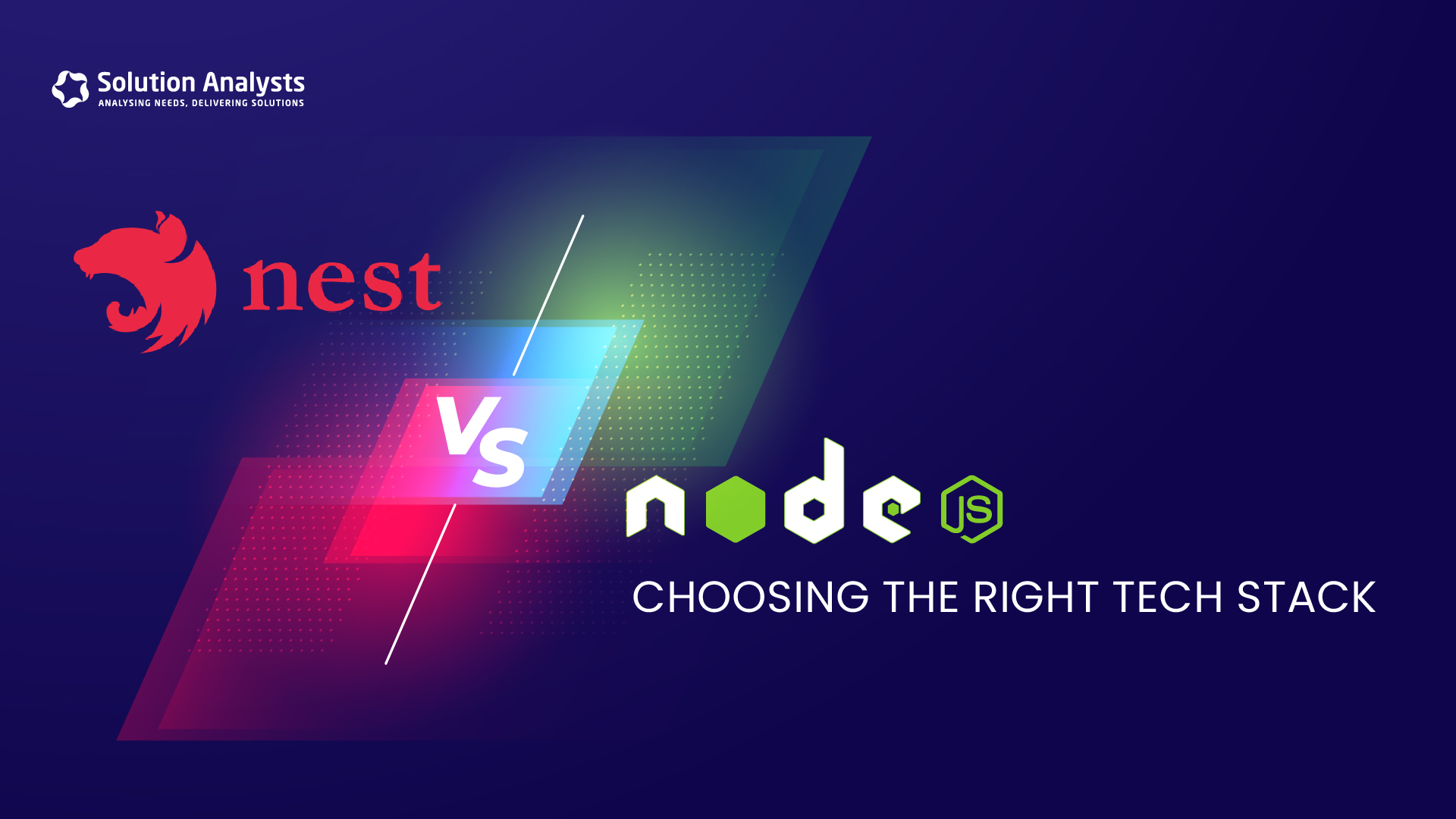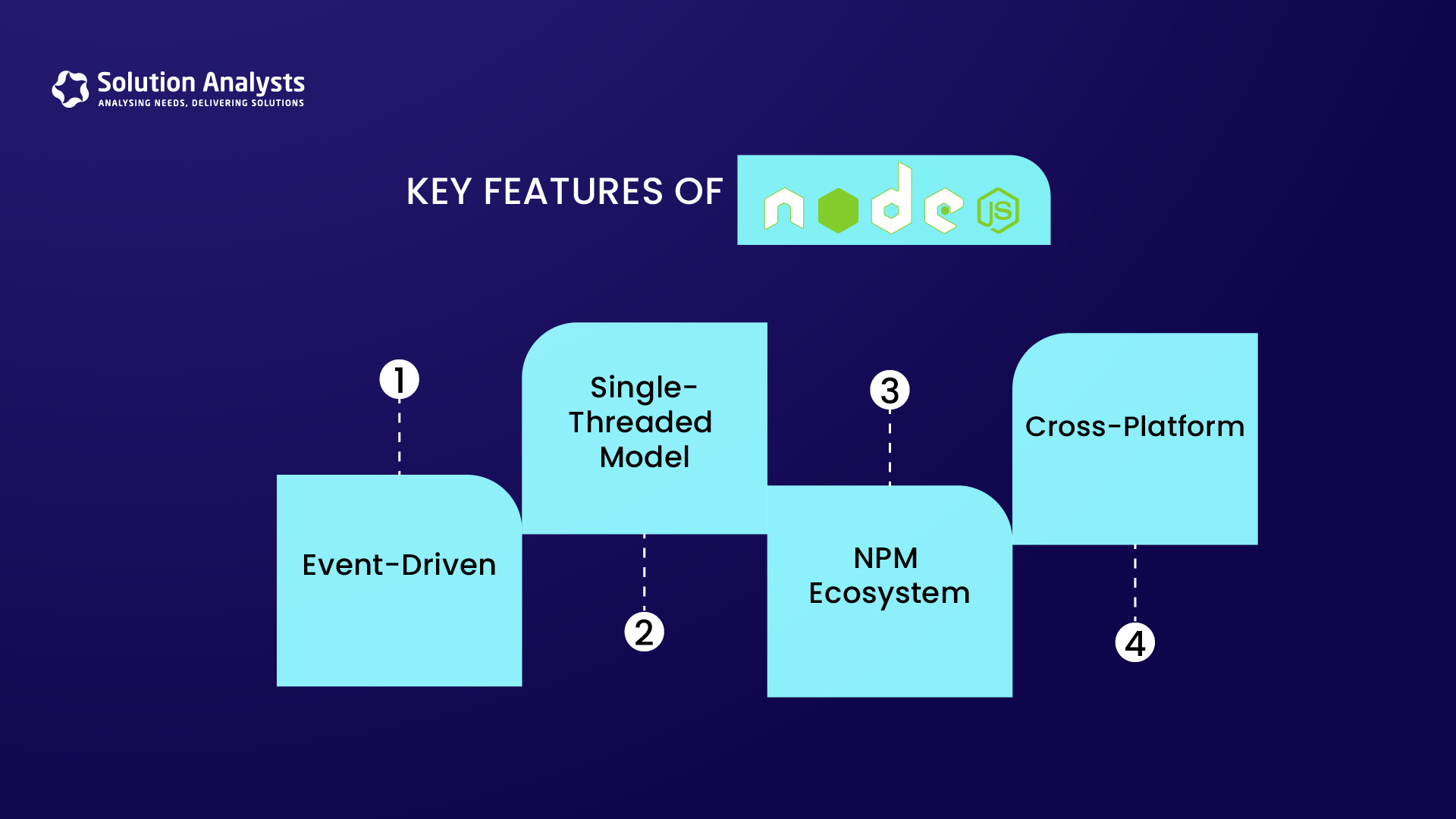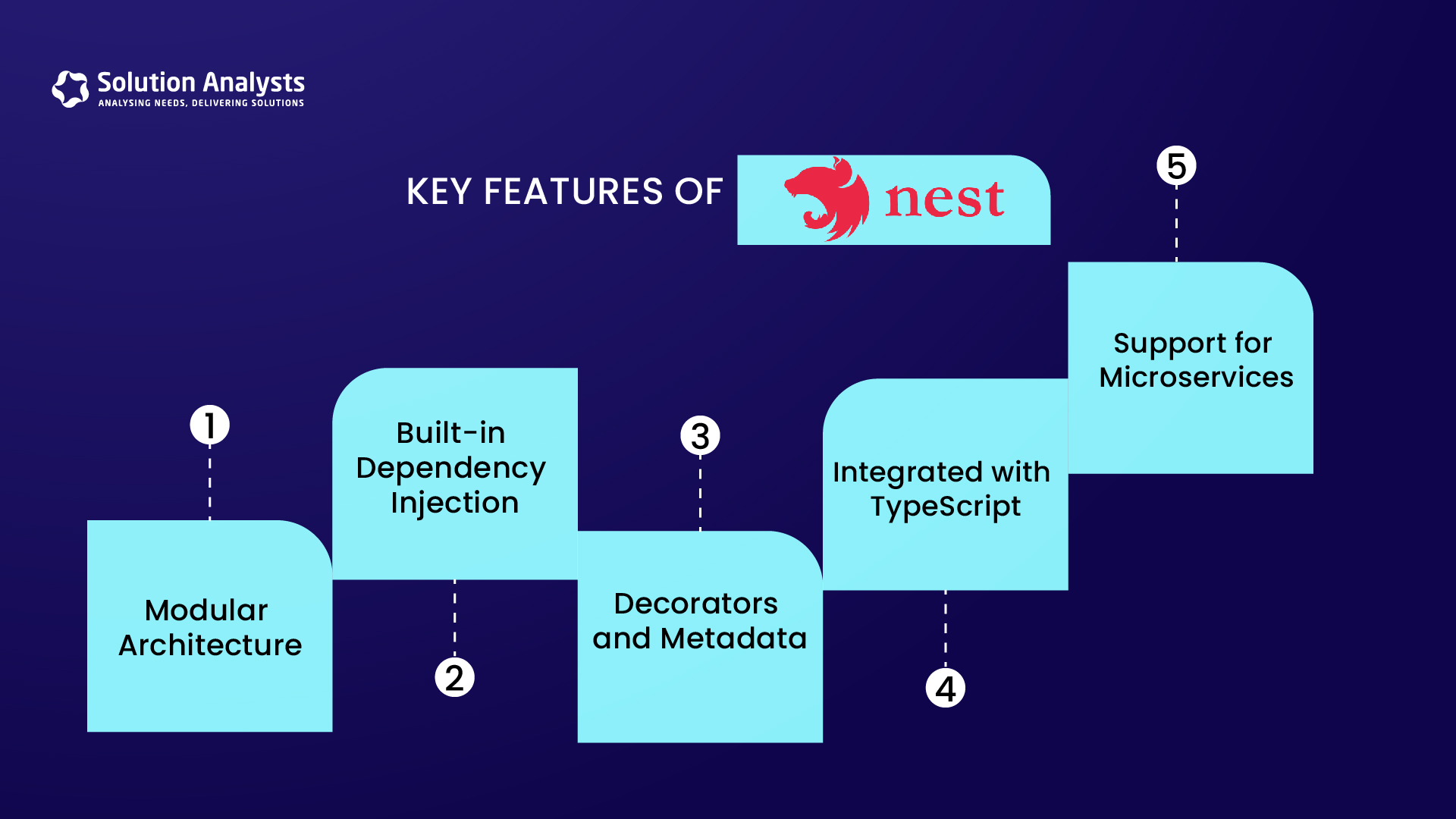
Table of Contents
The world of web development is constantly evolving. It is very tricky to choose the proper framework for your project. Two widely discussed options in this area are Nest.js vs Node.js. Though they are related, each holds distinct purposes and comes with its unique features. This blog aims to compare Node.js and Nest.js to help you determine which is the best fit for your project, making the decision process more manageable.
Node.js is a versatile and powerful runtime engine based on Chrome’s V8, ideal for building network applications. In contrast, Nest.js is a framework that offers a structured and organized approach with built-in libraries to enhance Node.js. Here we will explore their fundamental differences, use cases, industry popularity, and the resources available to developers, providing a comprehensive understanding to make an informed choice.
What is Node.js?
Node.js uses the V8 JavaScript engine, which powers Google Chrome, to execute code outside of a browser. It is known for its event-driven architecture, which helps in building high-performance applications that can be scaled.

Key Features of Node.js:
- Event-Driven: Node.js is designed to handle asynchronous operations, making it efficient for I/O-heavy tasks like API calls, database queries, and file operations.
- Single-Threaded Model: Despite being single-threaded, Node.js can handle multiple connections simultaneously thanks to its event loop mechanism.
- NPM Ecosystem: Node.js has a massive ecosystem of libraries and packages available through the Node Package Manager (NPM), making it easy to integrate various functionalities into applications.
- Cross-Platform: Node.js applications can be run on various operating systems, including Windows, Linux, and macOS.
What is Nest.js?
Nest.js is a progressive Node.js framework that builds on top of Express (or Fastify). It is inspired by Angular developers and follows a modular architecture, making it easier to manage and scale large applications. Nest.js provides an out-of-the-box application architecture that helps developers create highly testable, scalable, loosely coupled, and easily maintainable applications.

Key Features of Nest.js:
- Modular Architecture: Nest.js promotes a modular approach to building applications, making it easier to organize your codebase and manage dependencies.
- Built-in Dependency Injection: Nest.js has a built-in dependency injection system, which simplifies the management of service dependencies and improves code reusability.
- Decorators and Metadata: Like Angular, Nest.js uses decorators to define the structure of your application.
- Integrated with TypeScript: While you can use JavaScript with Nest.js, it is designed to work seamlessly with TypeScript, providing type safety and enhanced code quality.
- Support for Microservices: Nest.js has built-in support for creating microservices, making it easier to scale your application across multiple services and platforms.
Comparison: Node.js vs. Nest.js
Let’s break down the comparison of Nest.js vs Node.js into several vital aspects to help you decide which one suits your needs best.
-
Ease of Use
Node.js: Offers flexibility and freedom, allowing developers to structure their projects as they see fit. However, this flexibility can lead to inconsistencies in code quality and architecture if not appropriately managed.
Nest.js: Provides a well-defined structure out of the box, which can be a boon for larger projects. The learning curve may be steeper for beginners due to its Angular-like architecture and use of TypeScript.
-
Development Speed
Node.js: With its vast ecosystem of NPM packages, Node.js allows for rapid development. However, dedicated skilled developers need to spend time choosing and integrating suitable packages.
Nest.js: Speeds up development by offering built-in features like dependency injection, middleware, and modularization.
-
Scalability
Node.js: Highly scalable due to its event-driven architecture, but scalability depends heavily on the developer’s ability to design a robust system.
Nest.js: Designed with scalability in mind, Nest.js’s modular structure and built-in support for microservices make it a strong candidate for large-scale applications.
-
Performance
Node.js: Offers excellent performance for I/O-bound tasks, significantly when appropriately optimized. It’s lightweight and can handle a large number of concurrent connections efficiently.
Nest.js: While built on top of Node.js, Nest.js adds a layer of abstraction. This can impact performance, but the difference is often negligible, especially considering the benefits of improved code structure and maintainability.
-
Community and Support
Node.js: Has a large and active community with extensive resources, tutorials, and third-party libraries available.
Nest.js: The Nest.js community is proliferating, with increasing resources and contributions. It also benefits from the backing of the Angular community due to its similar architecture.
-
Use Cases:
Node.js: Ideal for lightweight applications, real-time applications (e.g., chat apps, live streaming), and I/O-bound services.
Nest.js: Best suited for enterprise-level applications, APIs with complex business logic, and projects where maintainability and scalability are top priorities.
Example Scenarios
Scenario 1: Building a Simple REST API
To build a simple REST API for a small project, Node.js is the way to go. Its flexibility and vast ecosystem of packages allow you to quickly set up the project and focus on delivering features.
Scenario 2: Developing a Large-Scale Enterprise Application
For a large-scale enterprise application, Nest.js would be a better choice. Its modular architecture, dependency injection, and built-in features like guards and interceptors will help you manage the complexity of the project and maintain code quality.
Conclusion
Choosing between Node.js and Nest.js depends mainly on the specific needs of your project. Node.js is an excellent choice for developers who need flexibility and control, especially for smaller or I/O-intensive applications. Nest.js is is for well-defined structure, scalability, and maintainability.
Whether you go with Node.js or Nest.js, both are powerful tools that can help you build robust and efficient backend applications. If you are still confused and looking for a partner for your project who can assist you with your technical requirements, contact us and schedule a free consultation call.










 sales@solutionanalysts.com
sales@solutionanalysts.com biz.solutionanalysts
biz.solutionanalysts






